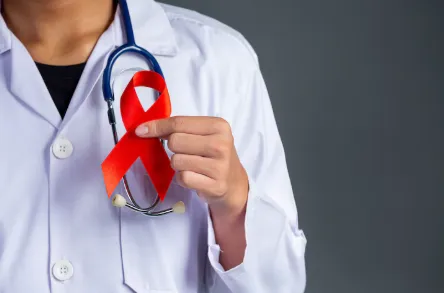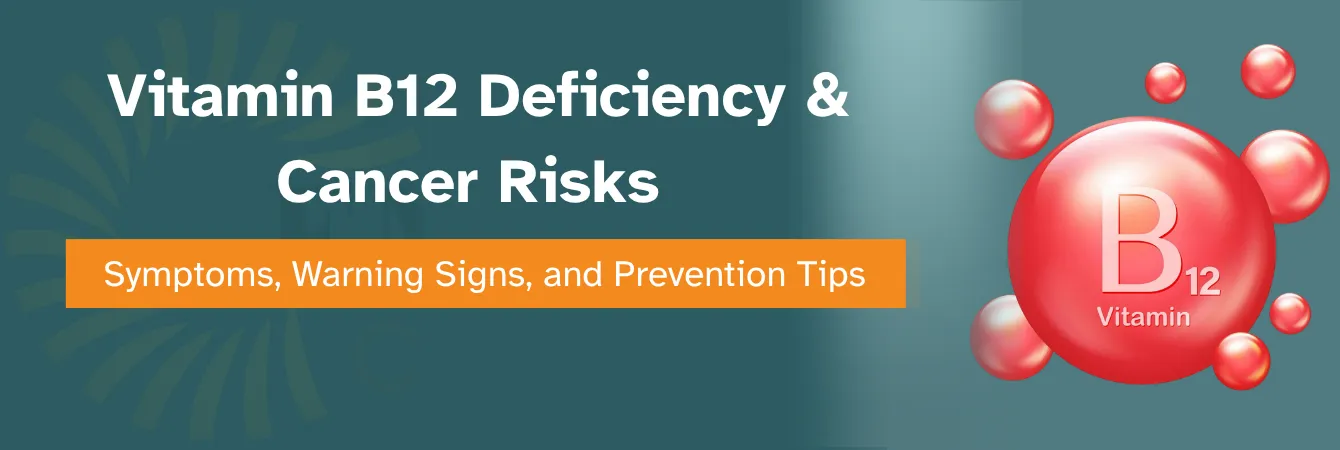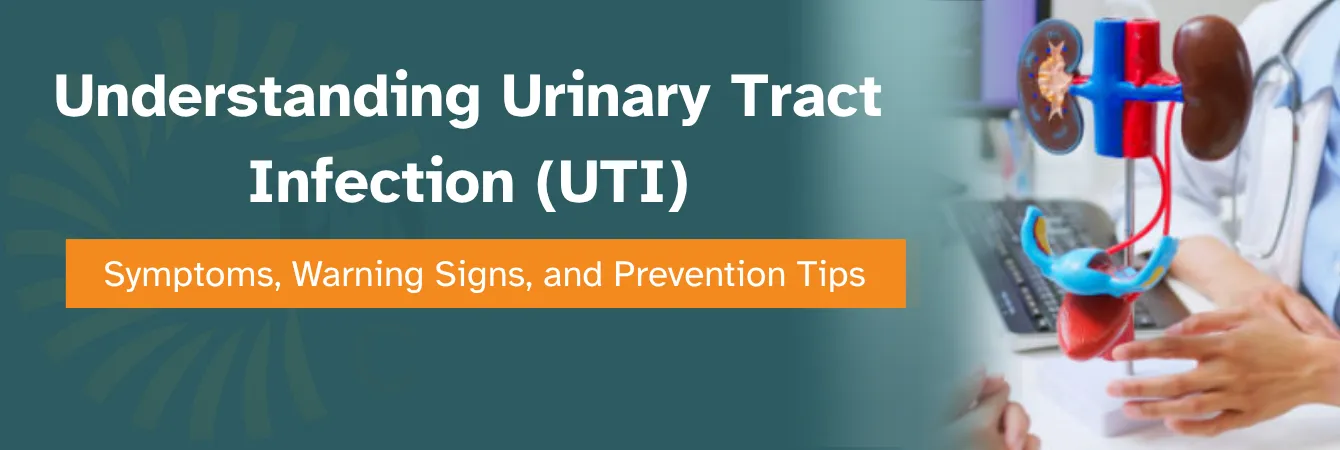Can Vitamin B12 Deficiency Be a Warning Sign of Cancer?
- July 19, 2025
- Abrol Hospital
Vitamin B12, or cobalamin, is an essential water-soluble vitamin that plays a vital role in red blood cell production, neurological function, and DNA synthesis. A deficiency in this crucial nutrient can lead to serious medical conditions such as anemia, neuropathy, and cognitive decline. Interestingly, emerging research and clinical observations suggest that Vitamin B12 deficiency might not always be a standalone nutritional issue—it could be a red flag for deeper pathological processes, including certain cancers. This detailed advice by our expert oncologist dives deep into the intricate relationship between Vitamin B12 deficiency and cancer, exploring whether it can truly serve as an early warning sign for malignancy.
What Happens When Your Body have Vitamin B12 Deficiency
Role and Metabolism of Vitamin B12: Vitamin B12 is primarily obtained through animal-based foods such as meat, fish, eggs, and dairy products. Once ingested, B12 binds with intrinsic factor—a glycoprotein secreted by the stomach’s parietal cells—enabling its absorption in the ileum, the last part of the small intestine. The absorbed B12 is stored in the liver and can be retained for years, which is why deficiencies often take time to manifest.
The body utilizes B12 as a cofactor in two crucial enzymatic reactions: one that converts homocysteine to methionine, supporting methylation processes vital for DNA repair and neurological health, and another that converts methylmalonyl-CoA to succinyl-CoA, a step required for fatty acid metabolism. Disruption of these processes due to low B12 levels can result in defective DNA synthesis, neurological complications, and metabolic dysfunction, setting the stage for potential malignancies.
Common Causes of Deficiency: There are several pathways through which an individual may develop Vitamin B12 deficiency. One of the most prevalent causes is pernicious anemia, an autoimmune condition in which the body attacks the parietal cells or intrinsic factor itself, leading to impaired absorption of B12. This autoimmune destruction is frequently associated with chronic atrophic gastritis, a known precursor to gastric cancer.
Other causes include gastrointestinal conditions such as Crohn’s disease, celiac disease, and intestinal surgeries like gastric bypass, which all compromise the ability of the gut to absorb B12. Dietary insufficiency is another concern, especially among individuals following strict vegan or vegetarian diets who do not consume animal products. Additionally, long-term use of medications like proton pump inhibitors (PPIs) and metformin can interfere with B12 absorption by reducing stomach acidity or altering intestinal motility.
Clinical Presentation and Diagnostic Testing: Clinically, Vitamin B12 deficiency can present with a range of symptoms depending on the duration and severity of the deficiency. Early signs often include fatigue, pallor, glossitis, and mild memory impairment. As the deficiency progresses, patients may experience more severe neurological symptoms such as paresthesia (tingling in hands and feet), unsteady gait, depression, and even dementia-like symptoms.
Diagnosis involves measuring serum B12 levels, where levels below 200 pg/mL are generally considered deficient. However, borderline cases may require further testing using methylmalonic acid (MMA) and homocysteine levels, both of which rise when B12 is low. A complete blood count (CBC) often reveals macrocytic anemia, and a peripheral blood smear may show hypersegmented neutrophils. Identifying the underlying cause, such as intrinsic factor antibodies or atrophic gastritis, is crucial in guiding treatment and evaluating for more serious conditions like malignancy.
How B12 Deficiency and Cancer Might Be Connected
Low B12 Affects Your DNA and Increases Cancer Risk: Your body needs B12 to help with a process called methylation, which protects your DNA and keeps your genes working correctly. Without enough B12, this process breaks down, and your DNA can start to form mistakes. Some of these mistakes may eventually lead to cancer, especially in fast-growing tissues like the stomach or intestines. That’s why long-term vitamin B12 deficiency could be one piece of the cancer puzzle.
How Stomach Damage Can Lead to B12 Problems and Cancer Risk: When your stomach lining becomes damaged—either from an autoimmune disease or a bacterial infection (like H. pylori)—it can stop making the acid and proteins needed to absorb B12. This condition, known as chronic atrophic gastritis, also happens to increase your risk of stomach cancer. So, when someone develops B12 deficiency because of this stomach issue, it might be an early warning sign that something more serious is going on in the digestive system.
Does B12 Deficiency Cause Cancer, or Is It Just a Clue?
It’s important to remember that having low B12 doesn’t always mean you’ll get cancer. Sometimes, cancer causes B12 deficiency—not the other way around. For example, tumors in the stomach or intestines can block the body’s ability to absorb nutrients like B12. Also, certain cancers can release proteins that mess with B12 levels in your blood. That’s why doctors need to look at the full picture when someone has low B12.
Cancer Types Most Commonly Occured with Vitamin B12 Deficiency
Gastric (Stomach) Cancer
Among all cancer types, gastric cancer has the strongest and most direct link with Vitamin B12 deficiency. The chain of events often begins with chronic atrophic gastritis, particularly in individuals with autoimmune gastritis or long-standing Helicobacter pylori infection. The destruction of parietal cells leads to loss of intrinsic factor and gastric acid—both essential for B12 absorption. Over time, these changes not only result in B12 deficiency but also promote a precancerous environment characterized by intestinal metaplasia and dysplasia.
Therefore, when B12 deficiency is discovered alongside symptoms such as upper abdominal discomfort, early satiety, or unexplained weight loss—particularly in older adults—gastric cancer must be considered in the differential diagnosis. Endoscopic evaluation with biopsy may be warranted in such cases.
Colorectal Cancer
Colorectal cancer is another malignancy commonly associated with B12 deficiency. Chronic inflammation, polyps, or tumors in the large intestine can disrupt nutrient absorption and lead to secondary deficiencies. Furthermore, B12 deficiency is more common in individuals over 50—the same age group most at risk for colorectal cancer.
Some studies suggest that low B12 may not only be a consequence but also a contributor to colorectal carcinogenesis through impaired DNA repair and genomic instability. Nonetheless, more research is required to establish a definitive causal relationship.
Hematologic Malignancies
Hematologic cancers, such as leukemia, lymphoma, and multiple myeloma, may interfere with B12 levels in various ways. Firstly, they can affect bone marrow and red blood cell production, leading to anemia that mimics megaloblastic anemia caused by B12 deficiency. Secondly, in some cases, high levels of circulating haptocorrin and transcobalamin—produced by cancerous cells—can bind B12 and lead to falsely elevated levels in blood tests.
This can mask a true tissue-level B12 deficiency, making diagnosis challenging. Conversely, a true B12 deficiency may cause hematological changes (such as pancytopenia) that mimic malignancy, underscoring the importance of accurate diagnostic workup.
Liver and Other Solid Tumors
The liver plays a central role in storing and recycling Vitamin B12. Liver metastases or primary liver cancers can release stored B12 into the bloodstream, leading to falsely high serum levels. In such cases, B12 elevations may reflect tumor burden rather than nutritional status. Similar patterns have been observed in lung, pancreatic, and breast cancers, where elevated B12-binding proteins may serve as indirect tumor markers.
Thus, Abrol Hospital, a leading cancer care hospital in Gurdaspur, are advised to carefully evaluate unexpectedly high Vitamin B12 deficiency markers—even in the absence of supplementation. Persistently elevated B12 levels can sometimes indicate underlying malignancies or paraneoplastic syndromes, and therefore warrant further diagnostic investigation to rule out serious conditions, including cancer.
Read in Hindi: विटामिन बी12 की कमी: लक्षण, कारण और उपचार
Sources of Vitamin B12 for Vegetarians vs. Non-Vegetarians
For Non-Vegetarians
People who consume animal products generally have multiple natural sources of Vitamin B12, since it is most abundantly found in meat and seafood.
Meat & Poultry: Beef, chicken, lamb, turkey, and organ meats (like liver) are excellent sources.
Fish & Seafood: Salmon, tuna, sardines, mackerel, trout, and shellfish (clams, crab, shrimp) are rich in B12.
Dairy Products: Milk, yogurt, and cheese provide moderate levels of B12.
Eggs: Egg yolks contain B12 and can be included in daily diets.
👉 Non-vegetarians usually meet their B12 needs through diet alone unless absorption issues (like gastritis or intestinal disease) interfere.
For Vegetarians & Vegans
Since Vitamin B12 is not naturally present in plant-based foods, vegetarians and especially vegans must rely on fortified foods or supplements.
Dairy Products (Vegetarians only): Milk, paneer, curd, and cheese provide some B12.
Eggs (Ovo-vegetarians): A moderate source of B12.
Fortified Foods:
Plant-based milks (soy, almond, oat, coconut) fortified with B12
Breakfast cereals fortified with B12
Nutritional yeast fortified with B12
Plant-based meat substitutes enriched with B12
Supplements: Daily oral supplements, sprays, or injections (for severe deficiency) are essential for vegans.
👉 For strict vegans, supplements or fortified foods are the only reliable way to maintain healthy B12 levels, since plants alone cannot supply this vitamin.
When You Should Consult an Oncologist?
If you’re experiencing symptoms like fatigue, numbness, memory issues, or unexplained anemia—don’t ignore them. While Vitamin B12 deficiency is common, it can sometimes point to deeper health concerns, including cancer. Schedule a consultation with our experienced oncologist today to explore the root cause of your symptoms. We’re here to guide you with advanced diagnostics and compassionate care—because your health deserves a closer look.

FAQs About Kidney Stones Symptoms
Yes, in some cases. While most Vitamin B12 deficiency are due to poor dietary intake or absorption problems, persistent or unexplained B12 deficiency—especially in older adults or those with gastrointestinal issues—can sometimes be a red flag for underlying malignancies, particularly in the stomach, colon, or pancreas. Cancers in these organs can interfere with B12 absorption or mimic conditions (like chronic gastritis) that reduce B12 levels. So while it’s not a direct cause-and-effect relationship, a persistent deficiency without a clear cause should prompt further investigation.
The richest natural sources include animal products such as beef, liver, chicken, fish (salmon, tuna, sardines), shellfish (clams, crab), dairy products, and eggs.
The strongest associations have been found with:
Gastric (stomach) cancer – especially in people with pernicious anemia or chronic gastritis.
Colorectal cancer – where B12 deficiency may be part of a broader pattern of malabsorption.
Pancreatic and liver cancers – where high or abnormal B12 levels may signal hidden malignancies.
Blood cancers like leukemia or lymphoma – which can disrupt blood cell production and B12 transport.
No. Most cases are due to diet, malabsorption, or autoimmune conditions like pernicious anemia. However, persistent deficiency with red-flag symptoms (weight loss, stomach pain, anemia unresponsive to treatment) should be investigated for possible cancer.



